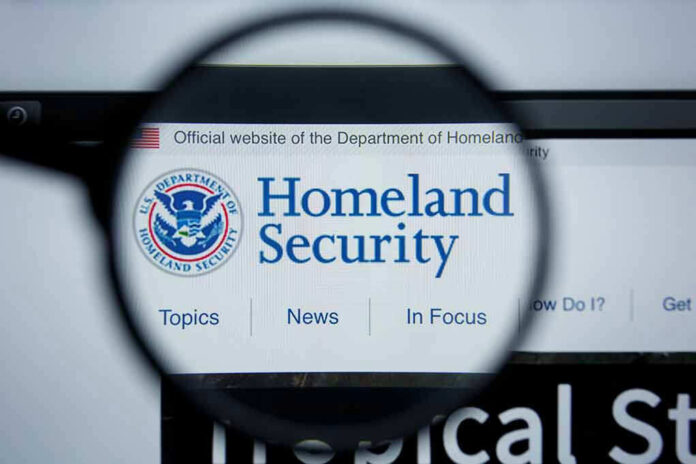
Harvard, long the darling of elite academia and progressive politics, is now scrambling to explain why the Department of Homeland Security demanded—and will soon receive—the employment records of nearly 19,000 of its own staff, thrusting the university into the crosshairs of a sweeping federal immigration probe that leaves no sacred cow unprodded.
At a Glance
- Department of Homeland Security ordered Harvard to submit I-9 employment forms for all employees, past and present.
- Harvard is complying after attempts to narrow the scope failed, raising major privacy and compliance questions.
- The scale of the federal probe is unprecedented in higher education and follows a hard reset of immigration enforcement under President Trump.
- Potential legal and privacy battles loom, especially regarding student workers’ records protected by FERPA.
Harvard Faces Unprecedented Federal Scrutiny Over Employee Records
The news broke just as the Ivy League’s summer calm was settling in: on July 8, 2025, the Department of Homeland Security issued a formal subpoena to Harvard, demanding the I-9 employment verification forms for every single employee working in Massachusetts Hall, the heart of the university’s administration. Within days, the request ballooned to cover all current employees—and anyone who has worked at Harvard in the last twelve months. That’s nearly 19,000 people, ranging from top professors to janitorial staff, now under the microscope of federal immigration authorities.
Harvard’s response was immediate but far from defiant. The university’s administration informed its workforce that it would comply with the DHS directive, while publicly wringing its hands about confidentiality and the use of any sensitive data. The move comes as no surprise—when the federal government turns up the heat, even the bluest of blue-blooded institutions starts to sweat. But the scale and speed of this compliance raise serious questions about the university’s priorities and the actual protection it offers its staff, especially those whose immigration status could be in question.
Federal Power Meets Ivy League Privilege: Who’s Really Protected?
Federal law requires all employers to maintain I-9 forms for every worker, documenting their identity and eligibility to work in the United States. Immigration and Customs Enforcement, a branch of DHS, has the legal authority to inspect these forms at any time. What’s different here is the sheer breadth of the request and the fact that it’s targeting Harvard, a flagship of the progressive elite and a major employer of international students, faculty, and staff.
For years, higher education has operated under the assumption that its globalist values and political connections granted a sort of immunity from the rules that govern the rest of America. That illusion just shattered. Now, Harvard must navigate a legal and public relations minefield. The administration has already begun a hurried review to determine whether student employment records, protected under the Family Educational Rights and Privacy Act (FERPA), should be included in the handover. Employees are left wondering whether their livelihoods—or worse, their legal status—hang in the balance, while the university’s legal team scrambles to cut deals over confidentiality that may or may not hold up in court.
The New Normal: Aggressive Immigration Enforcement Returns
This is what a hard reset on immigration enforcement looks like when the adults are back in charge. The Trump administration’s second term has wasted no time reestablishing the rule of law after years of unchecked illegal immigration and bureaucratic hand-wringing. DHS has made it clear: no institution, however revered or politically connected, is above scrutiny. The Harvard subpoena is not just an isolated incident—it’s a shot across the bow to every employer, especially those in left-leaning academia, that the era of selective compliance is over.
Harvard’s predicament is likely only the beginning. Legal experts say this federal action sets a “stunning precedent” for large-scale audits at other universities, particularly those with significant international populations. Human resources departments across the country are now pouring over their own I-9 files, bracing for the knock on the door. And while Harvard publicly claims to be fighting for privacy, it’s hard to ignore the fact that the university had little choice but to cave once the government showed its teeth.
Privacy, Precedent, and the Battle for Common Sense
Harvard’s compliance hasn’t gone unnoticed by privacy advocates and the academic elite, who are suddenly discovering a newfound fear of government overreach. The university’s leadership continues to stress their commitment to protecting employee data—at least, as much as the law allows. In reality, the law is the law, and this administration isn’t in the business of granting special favors to the ivory tower.
This episode will force a reckoning not just at Harvard but across the entire higher education sector. Universities will need to get serious about following the law, rather than pretending that “sanctuary” status or elite reputation offers a shield from federal enforcement. For American citizens and legal residents, it’s a welcome return to common sense: no more looking the other way while institutions play fast and loose with immigration law. For those who think the rules shouldn’t apply to them, the message is clear—those days are over.












